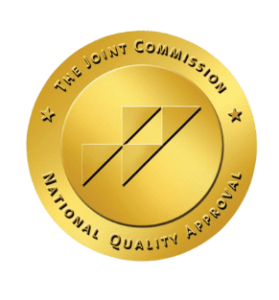Understanding Substance Abuse Case Managers
Substance abuse has become increasingly prevalent in recent times, and it needs to be addressed with urgent attention from dedicated professionals. Understanding the weight of substance abuse and the need for case management before the issues become impossible to manage is the first step toward effective treatment and better outcomes.
The Impact of Substance Abuse
Substance abuse affects people from all walks of life. Factors that contribute to the risk of substance abuse include genetic predisposition, mental health issues, trauma, and social influences. Without treatment, substance abuse can become chronic and progressive, fueling the cycle of addiction.
Common effects of substance abuse include relationship conflicts, financial problems, employment issues, legal troubles, and health complications. The societal costs are also unmeasurable in terms of lost potential and talent.
Substance abuse treatment is often a combination of counseling, therapy, medication, and social services. But relapse is all too common, which makes ongoing addiction management necessary.
What Is a Substance Abuse Case Manager?
A substance abuse case manager is an addiction professional who specializes in coordinating care, supporting recovery, and advocating for those with substance use issues. They assess individual needs, collaborate on treatment plans, link to appropriate services, keep an eye on progress, and recommend adjustments as needed.
Case managers help participants and their loved ones navigate complex systems of care and simplify ongoing management. They serve as a consistent contact through different stages of treatment. We like to think of them as the quarterbacks of the treatment team.
The Need for Case Managers in Treating Substance Abuse
Given how complex substance abuse problems can be, case managers play a vital role in successful recovery. They provide a structured and systematic approach for dealing with substance abuse, and they also make sure resources are used effectively and individuals get the social support they need.
Addiction case managers emerged as a response to the incomplete care that individuals in recovery receive. They coordinate treatment services and provide a single point of contact to make sure care is continued, especially during transitional stages between treatment.
Individuals with substance abuse often face many barriers to treatment and recovery, including:
- Denial and reluctance to get help
- A lack of social support systems
- Risky transportation options
- Housing and employment instability
- Co-occurring medical or mental health disorders
- Cognitive impairments affecting judgment and decision-making
- Criminal justice involvement
Case managers help individuals and their loved ones find and overcome these barriers through assessment, planning, linking, monitoring, and advocacy while providing personalized support.
Could someone you care about benefit from an addiction case manager and the flexibility to rehab from home? See how ALYST makes that possible.
The Roles and Responsibilities of Substance Abuse Case Managers
Assessment: Identifying and Evaluating Participant Needs
Case managers conduct assessments covering substance use, physical and mental health, social factors, and readiness to change. These assessments are vital for informing personalized treatment plans.
Care Coordination: Collaborating on Treatment Plans
Case managers collaborate and coordinate with clinicians to develop treatment plans based on these initial assessments. They coordinate referrals, transportation, applications, and social resources. Implementing the treatment plan and following up are key parts of their role.
Advocacy: Streamlining Access to Services
Case managers advocate for appropriate care and streamline the administrative tasks associated with accessing services. They help participants address any issues related to healthcare, housing, criminal justice, and other care resources.
Support: Offering Emotional and Mental Guidance
Case managers provide understanding, encouragement, and guidance throughout recovery. They motivate participants and help them cope with stressors and navigate how to integrate back into society.
Monitoring: Keeping Track of Progress and Adjusting the Plan
Ongoing monitoring allows case managers to evaluate progress and adjust plans as needed. This improves outcomes and lowers the risks of crisis situations or relapse.
Documentation: Keeping Detailed Records and Reports
Case managers keep progress notes, assessments, treatment plans, and other records. Proper documentation is essential for care coordination, tracking milestones, and navigating the transitional stages of recovery.
What to Look for in a Substance Abuse Case Manager
Compassion and Empathy: The Human Side of Case Management
Case managers have to be caring and supportive. They also need to take a non-judgmental and trauma-informed approach. Participants and their loved ones need to feel understood, accepted, and hopeful.
Organizational and Planning Skills: Keeping Track of Treatment
Case managers need to have strong organizational skills to juggle many services, treatment plans, records, deadlines, and other responsibilities. They also need to keep every member of the treatment team working toward the same goals.
Communication and Interpersonal Skills: Facilitating Relationships
Case managers connect with many individuals. They have to communicate effectively with family members, treatment providers, and community partners. Beyond coordination, an effective case manager allows each member of the team to focus on how they can contribute to an individual’s recovery. Without a case manager, each individual has to take the responsibility to reach out, which means more gaps in communication. A case manager finds and fills these gaps, laying the foundation for successful recovery.
Educational Requirements
To become a substance abuse case manager, a person typically has to have a bachelor’s degree in social work, psychology, counseling, or a related field. Some companies may accept candidates with an associate’s degree and relevant experience.
Many substance abuse case managers go on to earn a master’s degree in social work (MSW), counseling, psychology, or public health. Graduate programs allow them to specialize substance abuse, mental health treatment, and community-based care.
Licensure and Certifications
Requirements vary by state. Many regions require substance abuse counselors and social workers to hold professional licenses and certifications. These include the Licensed Clinical Social Worker (LCSW), Licensed Professional Counselor (LPC), and Certified Alcohol and Drug Counselor (CADC) credentials.
National certifications like the Credentialed Alcoholism and Substance Abuse Counselor (CASAC) also show specialized expertise. Volunteer experience, references, supervised work hours, exams, background checks, and continuing education are other things worth asking about when choosing a substance abuse case manager.
Effective Case Management Models in Treating Substance Abuse
Intensive Case Management
This model provides complete, individualized support to those with complex needs. Services are tailored to participants’ goals like finding housing, healthcare, childcare, and employment.
Frequent in-person meetings focus on skill-building, recovery coaching, service coordination, crisis intervention, and outreach. This level of involvement helps engage high-risk individuals in treatment.
Assertive Community Treatment
Assertive Community Treatment (ACT) takes a team-based approach to recovery. Participants work with a group of medical, psychiatric, social work, employment, and peer support professionals. The team provides 24/7 assistance.
ACT helps people access community-based resources. The emphasis is on treatment in natural settings versus hospitals or clinics. Case managers coordinate services across multiple areas to support how participants function when alone.
Strengths-Based Case Management
This method identifies and builds on participants’ abilities, knowledge, resources, and motivation to accomplish goals. Case managers take an empowering, collaborative approach focused on what individuals can do, not what they can’t.
Discussions explore participants’ talents, supportive relationships, cultural identity, personal choices and values. Participants direct their own recovery plan while case managers provide tools and guidance.
At-Home Addiction Case Management
At-home addiction case management offers many benefits for individuals struggling with substance abuse issues. Having an at-home case manager lets them feel more comfortable opening up about their challenges and goals. The convenience of in-home services can also make it easier for participants to stick to their treatment plans.
At-home case managers see the participant’s living environment so they can better understand their day-to-day struggles. They can provide counseling, help connect them to support groups and other resources, assist with scheduling appointments, and monitor their progress. Overall, the personalized support and accountability that at-home addiction case managers provide often leads to better outcomes and a higher quality of life for individuals in recovery.
Explore ALYST’s Range of At-Home Addiction Therapy Services
A dedicated addiction case manager is essential to engaging individuals in treatment, making progress in recovery, and coordinating life after treatment. If someone you care about has struggled to stay sober, ALYST’s at-home rehab model provides a creative approach to addressing past challenges with everything from strategic interventions to sober companion services. Get started by requesting a confidential addiction consultation today.






